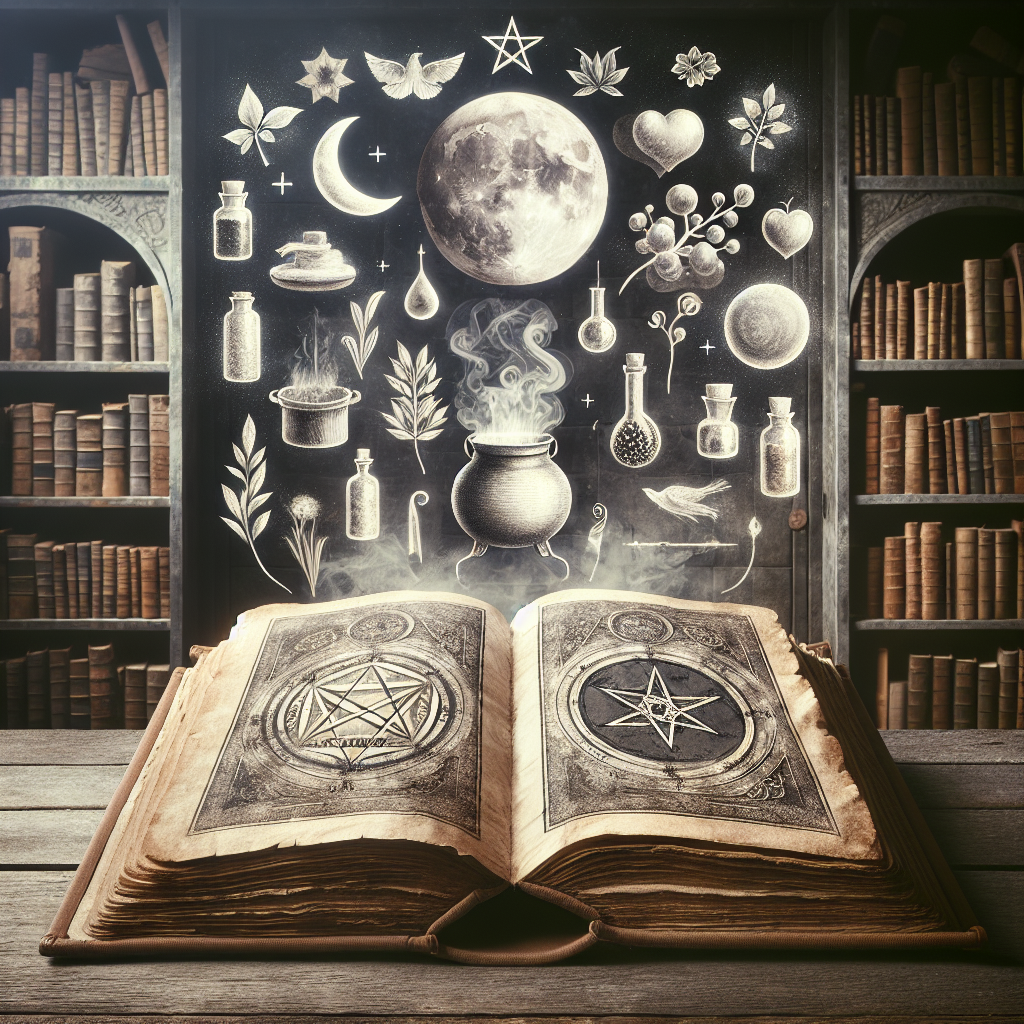Debunking the Myths: Dispelling Misconceptions About Wiccan and Wicca
introduce
Witchcraft and witchcraft have long been surrounded by myths and misunderstandings. Misinformation and misconceptions about these practices have led to negative stereotypes and stigmatization of Wiccan or witches. In this article, we aim to debunk some of the most common myths and misconceptions about Wiccans and witchcraft, and reveal the truth behind these practices.
What is Wicca?
Wicca is a modern pagan religion founded by Gerald Gardner in the mid-20th century. It is based on pre-Christian beliefs and practices and focuses on the worship of nature and the elements. Wiccan believe that a divine energy exists within all living things and seek to connect with this energy through rituals and spells.
Myth #1: Wiccan Worship the Devil
One of the most common myths about Wiccan people is that they worship the devil. This misunderstanding may stem from the fact that Wicca is a nature-based religion that has historically been demonized by Christian authorities. In fact, Wiccan people do not believe in the devil or any form of evil deity. Their beliefs revolve around a celebration of nature, the cycle of seasons, and the interconnectedness of all living things.
Myth #2: Witches are evil and practice black magic
Another common misconception about Wiccan and witches is that they are evil and engage in dark and malevolent activities. Popular culture and Hollywood’s portrayal of witches as villains and wizards perpetuates this stereotype. In fact, the vast majority of Wiccan and witches adhere to a strict moral code that prohibits them from using their powers to harm others. Witches who practice black magic are often considered outliers in their community.
Myth #3: Wiccan people are secretive and secretive
There is a misconception that Wiccan people are mysterious and mystical and that they engage in secret rites and rituals. While Wiccan people do value privacy and may not openly discuss their beliefs with strangers, this is not because they engage in nefarious activities. Like members of any other religion or spiritual practice, Wiccan have the right to keep their beliefs private and share them only with those they trust.
Myth #4: Wiccan people are anti-Christian
Some people mistakenly believe that Wiccan people are anti-Christian or actively opposed to the Christian faith. While Wicca is indeed a separate religion from Christianity, this does not mean that Wiccan are hostile to Christians or their beliefs. Wiccan believe in the importance of tolerance and acceptance of all religious beliefs and strive to coexist peacefully with people of all faiths.
Frequently Asked Questions About Wiccans and Witchcraft:
Q: Do Wiccan worship the devil?
Answer: No, Wiccan do not believe in the devil or any form of evil deity. Their beliefs center on nature and the interconnectedness of all living things.
Q: Can witches perform black magic?
A: While some witches may practice magic that is considered dark or malevolent, most wizards adhere to a moral code that prohibits them from using their powers to harm others.
Q: Do Wiccan secrecy exist?
A: Wiccan people do value privacy and may not openly discuss their beliefs with strangers, but this is not because they engage in secret or nefarious activities.
Q: Are Wiccan anti-Christian?
A: Wiccan believe in tolerance and acceptance of all religious beliefs and do not view Christianity as a threat or enemy.
in conclusion
Overall, Wiccan and witches are unfairly stereotyped and stigmatized due to misinformation and misunderstandings about their beliefs and practices. By debunking these myths and revealing the truth behind witchcraft and witchcraft, we can promote understanding and acceptance of these spiritual paths. It is important to approach these practices with an open mind and a willingness to learn, rather than relying on outdated stereotypes and misconceptions. By doing so, we can create a more inclusive and tolerant society for people of all faiths and spiritual beliefs.
